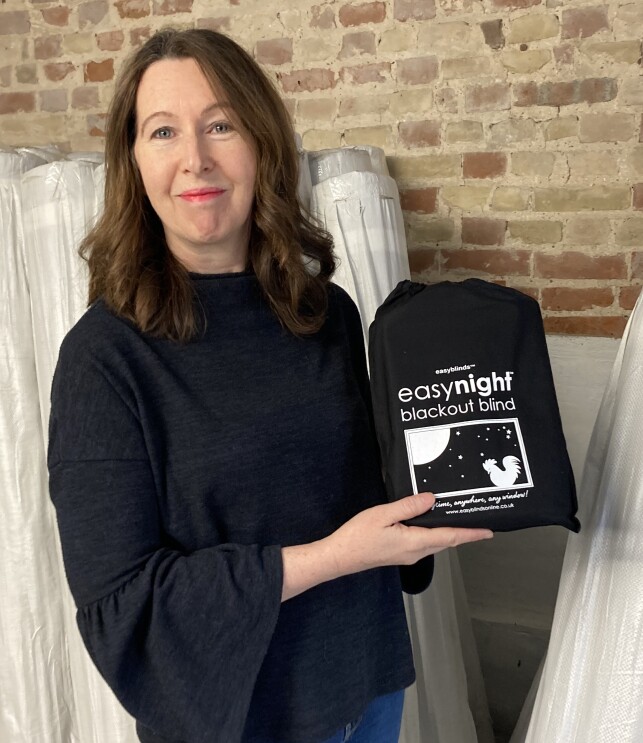Amazon is delighted to celebrate the UK’s first E-Commerce Week, which runs from 18-22 March. This event was created to inspire, educate and motivate businesses of all sizes across the UK to grow online.
E-Commerce week has been led by the E-Commerce Trade Commission, an industry led coalition made up of representatives from the UK government and some of the largest companies, businesses, and business associations. The Commission was convened to support and empower businesses across the UK, and it was formed after a report by the Social Market foundation, supported by Amazon and the Institute of Export and International Trade (IOE&IT), identified that 70,000 UK businesses have the potential to export internationally.
The E-Commerce Trade Commission will be an invaluable resource for businesses across the UK, and Amazon believes that it will make a genuine contribution towards boosting the UK economy. In addition, it will support these businesses as they grow and reach their international potential.
E-Commerce Week will help businesses find resources and show existing and new business owners across the UK an easy path to exporting via e-commerce. Throughout this week, the Commission will publish a series of articles, videos and host a webinar online at grow-with-ecommerce.com. These resources have all been designed with the aim of “Putting the Ease in E-commerce.”
“We believe that e-commerce is a powerful enabler to exporting – it helps businesses to ‘dip their toe’ in other markets, and learn how to scale up international sales, without having to place a big bet upfront,” said Anjana Anand, Director of Insight & Innovation UK at Amazon. “We can do much more to inspire and motivate businesses to explore the opportunities that e-commerce exporting offers. This is why we are delighted to support the E-commerce Trade Commission which will make a genuine contribution towards boosting UK economic growth and supporting small businesses to reach their exporting potential.“
“The E-Commerce Trade Commission brings together key marketplaces and organisations united in our ambition to help UK businesses benefit from international trade. We know that exporting for a small business can seem daunting, but education is key – which is where E-Commerce Week comes in,” said Marco Forgione, Director General of the Institute of Export & International Trade and Chair of the E-Commerce Trade Commission. “We’re here to hold every business owner’s hand through every step of the process – from finding out which countries have a strong desire for your product, to how to deal with customs, to finding the best value logistics for your business. No matter what concerns or questions you may have, we’re here to help. This is your opportunity to find out just how far you can take your businesses.”
More than 100,000 small businesses across the UK sell on Amazon, generating more than £3 billion in export sales. Some of these businesses include easyblinds, Bamboo Bamboo, Seep and more.
Here’s how these small businesses seized global opportunities and found success exporting to international markets via Amazon:
Born out of Audrey Buck's struggle as a new parent to get her child to nap during the day, easyblinds originated with a DIY bin-liner hack. The success of this makeshift solution inspired Audrey to develop her own blackout blinds from scratch, aiming to provide a more practical solution for parents.
Word of Audrey’s creation spread across her friends, and more and more products were requested through word of mouth. The business grew organically from there and led to her making her own website. easyblinds really began to excel when they joined Amazon in 2008, which grew their brand awareness and was instrumental in helping expand into different markets.

Audrey said: "Amazon has been invaluable on our journey and, without Amazon's assistance, expanding our overseas presence in Europe and the U.S. wouldn't have been nearly as seamless or successful. The support we've received has been invaluable and it's the kind of support that once you get you can’t do without! It’s safe to say we wouldn’t be a million-pound business without Amazon.”
Seep
Laura Harnett, founder of Seep, leads a £1M+ household green cleaning business with a mission to eliminate 1 billion plastic cleaning items from landfills by 2030, offering zero-plastic, high-quality, natural tools for a cleaner home and a healthier planet.

She joined Amazon in 2022 with the aim to grow and expand the brand: “Amazon has been great in getting brand awareness and unfiltered feedback from customers,” she said. “It’s a third of our business and we wouldn’t have reached the million mark without it. We currently export to the EU and Amazon has made it easier to test new markets, as we don’t have the distribution to do it ourselves. It’s also how we plan to expand to the U.S. in the future.”
Bamboo Bamboo
Joel Parkes was tired of the food-stained patch on his kitchen floor when his youngest child was weaning. Unable to find good quality bowls to solve the problem, he decided to create his own sustainable plates and bowls with suction cups to prevent spills.
He started by investing just £2000 by selling products and clothes that he hadn't used for 6 months. In 2016, Bamboo Bamboo was born launching on its own website and Amazon. 65-70% of sales come from Amazon, and Joel attributes Fulfilment By Amazon (FBA) a catalyst for their growth. It helped them expand easily into new markets across the globe allowing them to be known widely, pick up multiple awards and be in the hands of many people quickly.

Utilising FBA allowed the business to stock products internationally with Amazon’s global logistics network, with Amazon taking care of shipping and delivery to customers. The company has evolved into a thriving business, now serving a global customer base that spans Europe, the US, Asia, and beyond.
Find out more about how Amazon is supporting small businesses.












